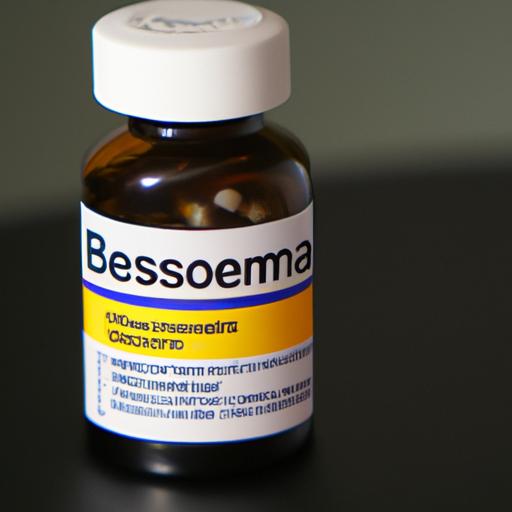
Introduction
In a world where restful sleep feels like a distant dream for many, Belsomra emerges as a beacon of hope. This innovative medication is designed to help individuals struggling with insomnia find solace in the realm of peaceful slumber. But before diving into the soothing depths of Belsomra, it is crucial to unravel a pressing question: is belsomra a controlled substance?
Let’s embark on a journey delving into the essence of Belsomra and its uses. Understanding the significance of whether Belsomra falls under the umbrella of controlled substances is paramount for both individuals seeking relief from sleepless nights and healthcare providers navigating the complex landscape of medication management. So, grab your metaphorical flashlight as we navigate through the twilight zone of Belsomra’s classification.
What is a Controlled Substance?
Definition and Classification of Controlled Substances
To comprehend the intricacies of controlled substances, we must first grasp their fundamental definition. Controlled substances are drugs or medications regulated by government authorities due to their potential for abuse or addiction. These substances are categorized into different schedules based on their level of risk and medical use.
Explanation of the Regulations Surrounding Controlled Substances
The regulations governing controlled substances are established to safeguard public health and prevent misuse. These regulations dictate strict protocols for the production, distribution, and prescription of controlled substances. Healthcare providers and pharmacists play a vital role in adhering to these regulations to ensure safe and responsible use of these medications. Understanding the nuances of these regulations is imperative in maintaining the delicate balance between accessibility and control of controlled substances.
Is Belsomra a Controlled Substance?
Classification of Belsomra as a Controlled Substance
When pondering the classification of Belsomra, a pivotal question arises: Does it fall under the realm of controlled substances? As we navigate the intricate web of medication regulations, it becomes evident that Belsomra stands apart from traditional controlled substances. Its unique mechanism of action and targeted approach to addressing insomnia set it apart in the pharmaceutical landscape.
Legal Status of Belsomra
In the realm of legalities, Belsomra treads a different path compared to traditional controlled substances. Understanding the legal status of Belsomra is essential for individuals seeking clarity on its accessibility, prescription requirements, and potential implications. By shedding light on the legal framework surrounding Belsomra, we can unravel the nuances of its availability and usage in the realm of sleep medicine.
Potential Risks of Controlled Substances
Risks Associated with Using Controlled Substances
When treading the delicate terrain of controlled substances, one must be cognizant of the inherent risks that accompany their usage. These substances, tightly regulated for a reason, possess the power to alter one’s physical and mental well-being. From addiction and dependency to severe side effects, the risks associated with controlled substances are not to be taken lightly.
Belsomra vs. Other Controlled Substances: A Comparative Analysis
In the realm of controlled substances, each medication bears its own set of risks and benefits. As we turn our gaze towards Belsomra, it is imperative to compare and contrast its potential risks with those of other controlled substances. By dissecting the nuances of each medication’s risk profile, we can gain valuable insights into the safety and efficacy of Belsomra in the realm of sleep disorders.
Benefits of Non-Controlled Substances
Advantages of Non-Controlled Substances for Medical Treatment
When it comes to medical treatment, opting for non-controlled substances can offer a plethora of advantages. Unlike their controlled counterparts, non-controlled substances provide a sense of freedom and flexibility in terms of prescription and usage. Healthcare providers can prescribe non-controlled substances with fewer restrictions, allowing for a more seamless treatment approach tailored to individual needs.
How Belsomra’s Classification Affects its Benefits
Considering Belsomra’s classification as a non-controlled substance, patients and healthcare providers can reap the benefits of a medication that offers therapeutic relief without the stringent regulations associated with controlled substances. This classification allows for a more streamlined process in obtaining and using Belsomra, fostering a sense of accessibility and ease in incorporating this medication into treatment plans.
Conclusion
In conclusion, the question of whether Belsomra is a controlled substance holds significant weight in the realm of medication management and patient care. As we’ve unraveled the intricacies surrounding Belsomra’s classification, it becomes evident that this medication stands apart from traditional controlled substances in its legal status and regulatory framework. By shedding light on this crucial aspect, we empower individuals to make informed decisions about their health and well-being.
So, the next time you find yourself pondering the mysteries of Belsomra and its place in the world of pharmaceuticals, remember that knowledge is power. Arm yourself with the understanding of Belsomra’s status as a non-controlled substance, and embark on your journey towards restful nights and rejuvenating sleep. With Belsomra by your side, the path to peaceful slumber becomes clearer, guiding you towards a brighter tomorrow.

